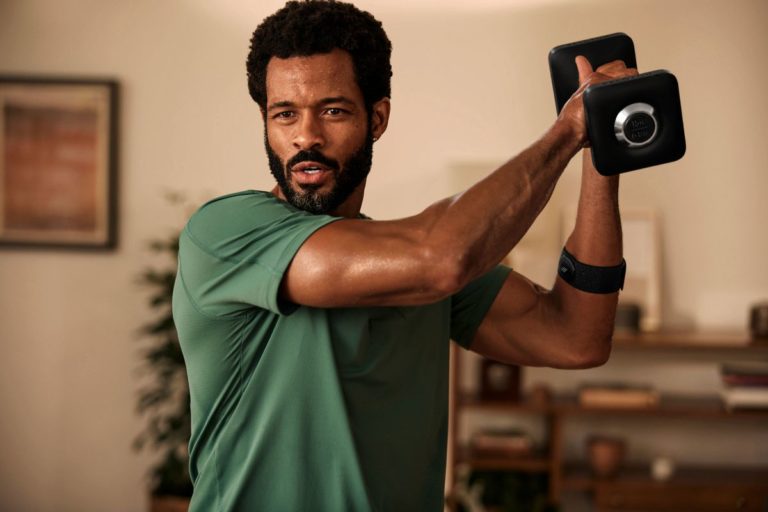Welcome to the Fitt Insider Weekly Debrief. Every weekend, we compile the top stories impacting the business of fitness and wellness from the past week.
Here’s what you need to know for October 24, 2021:
- Equinox is exploring a SPAC merger
- Paceline launches wellness credit card
- Withings lands FDA approval
Meet up in NYC? Fitt Insider co-founder Anthony Vennare will be in New York City November 1–6. Want to connect? Email insider@fitt.co
For more on the business of fitness and wellness, subscribe to the Fitt Insider newsletter and podcast.
Return of the SPAC
Equinox is back at the bargaining table, exploring a SPAC merger with Ares Acquisition Corp to take the fitness operator public, according to Bloomberg.
- Equinox has 100 luxury health clubs globally and owns SoulCycle, Blink Fitness, and Equinox Hotels.
- Accelerating its digital efforts, including Equinox+ and the SoulCycle at-home bike, Equinox landed an investment from private equity firm Silver Lake in early 2020.
- The company lost $350M on $650M in revenue amid the pandemic.
Earlier this year, a potential deal with Chamath Palihapitiya’s Social Capital SPAC failed to materialize. Had it come to fruition, Equinox would have notched a $7.5B valuation.
For now, the Equinox/Ares deal remains in a preliminary stage. But, it’s not the only fitness listing to keep an eye on.
Publicly traded. Beachbody, Xponential Fitness, F45 Training, and Life Time have recently IPOed, joining Planet Fitness and Nautilus in the public markets.
Next up. iFIT Health & Fitness delayed its listing after filing, and Echelon, Hydrow, and Tonal are reportedly eyeing an IPO in the near future.
Pay-for-Fitness
Fitness rewards platform Paceline unveiled its wellness credit card, linking financial incentives with physical activity.
With the Paceline Card, users who exercise 150 minutes per week unlock rewards, increased cash back, and other benefits. Cardholders can also get reimbursed for an Apple Watch, including the recently released Series 7.
- Paceline has raised more than $34M in funding, including a $25.9M Series A this summer.
- Users on the platform have logged 1.5B exercise minutes and over 40M workouts.
- Since last year, more than 1M rewards representing over $3.5M in value have been redeemed.
According to Paceline CEO Joel Lieginger, the platform is designed for “the next-generation connected consumer” that “prioritizes the physical and financial health of the cardholder.”
Why it matters. Americans’ health is in serious decline. Despite new fitness tech like wearables or at-home gyms, 80% of Americans don’t exercise enough for optimal health. And the economic fallout from obesity has eclipsed $1.7T, equivalent to 9.3% of US GDP.
Cashing in. As we detailed in our report on Pay-for-Fitness, a growing number of startups are paying users to work out.
- Sweatcoin and Clinicoin pay out in crypto for steps and healthy activities.
- Cadoo gamifies workouts by leveraging your wagered cash as accountability.
- HealthyWage lets you earn up to $10,000 when you meet weight loss goals.
- Ness, a yet-to-launch wellness credit card, aims to incentivize healthy living.
Punchline: Pay-for-fitness hasn’t yet caught on at scale, but it could be key to cracking the human element of exercise, like willpower and accountability.
Medical-grade Monitoring
French health tech company Withings will debut its smartwatch in the United States this winter after receiving a first-of-its-kind FDA clearance.
Finding its pulse. Withings isn’t a household name in the US, but the connected device maker has a history dating back nearly two decades:
- 2008: French engineer Éric Carreel founded the company, launching fitness trackers and smart bathroom scales.
- 2016: Telecom giant Nokia acquired Withings for $200M, rebranding it to Nokia Digital Health.
- 2018: Disappointed by the brand’s direction under Nokia, a year after his departure, Carreel returned to buy back Withings in 2018.
- 2020: Prioritizing healthcare over fitness tracking, the revived Withings raised $60M in a Series B round to scale its medical-grade, noninvasive health devices.
Digital diagnosis. Its latest product, a wrist-worn health tracker called ScanWatch, is a first of its kind — landing FDA approval for both the ScanWatch’s EKG (electrocardiogram) and pulse oximeter (a blood oxygen sensor).
With FDA clearance for its pulse oximeter, Withings officially moves ahead as a class II medical device, allowing the company a privilege that has evaded Samsung, Fitbit, and Apple: making a diagnosis.
Withings’ clinical studies show that it can detect nighttime breathing problems through accurate measurement of blood oxygen levels, heart rate, and movement. Being FDA-approved, any flagged data could be shared with a medical provider, who could substantiate a suspected sleep apnea diagnosis.
A step further, the monitor’s fine SP02 (oxygen saturation) measurements have been used for detecting chronic pulmonary diseases like COPD, as well as COVID-19, in wearers.
Takeaway: While the battle for your wrist has been ongoing for years, the war for who gets to speak with your doctor is just heating up.



